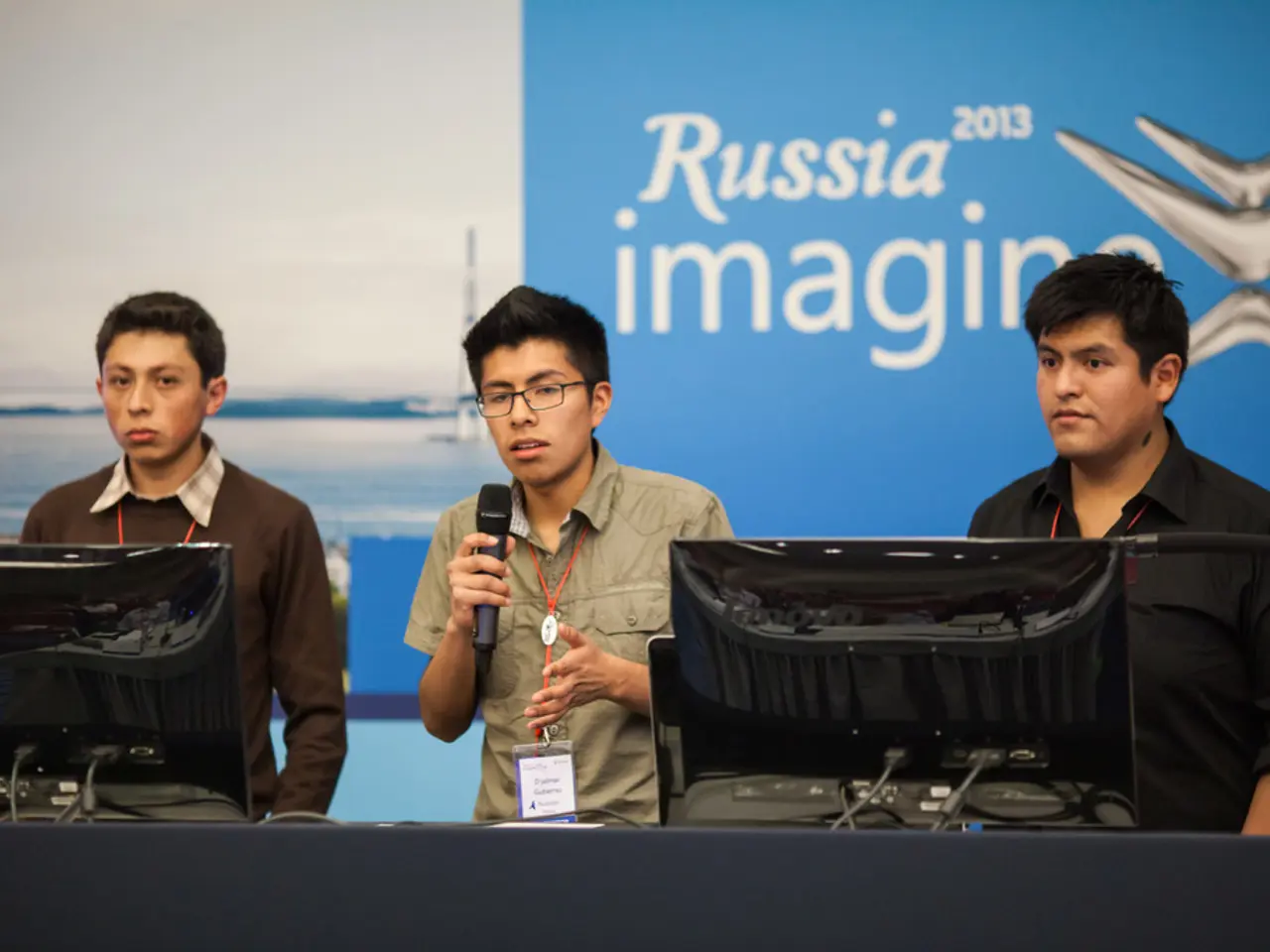EU cannot restore confiscated assets to Russia until they pay compensations to Ukraine, asserts Kallas
The ongoing war in Ukraine continues to be a significant issue for the European Union (EU), with discussions about aid and military support taking centre stage. The EU foreign ministers are currently meeting in Copenhagen for an informal Foreign Affairs Council to deliberate on these matters.
The EU decided to freeze state assets worth 210 billion euros following Russia's full-scale invasion of Ukraine. The biggest chunk of these assets, €183bn, is held in Belgium, a host country of the Euroclear clearinghouse for financial transactions. However, the issue of confiscating these assets has sparked controversy within the EU.
Poland and the Baltic countries have advocated for the full confiscation of the frozen assets, while Belgium, Germany, and France have expressed legal reservations. Experts have warned that the possible confiscation and use of these assets could result in a legal minefield for the EU.
Hungary, on the other hand, has taken a more assertive stance, filing a lawsuit against the Council of the EU over the decision to grant billions of euros of aid to Ukraine from frozen Russian assets. Budapest claims that the European Peace Facility (EPF) breached EU law by disregarding Hungary's opposition in this matter.
The EPF program finances military aid to allied countries, and Ukraine receives between €3-5 billion annually through this program, primarily funded by the interest of frozen Russian assets in Europe. The EU uses the interest from these frozen assets to support Ukraine's war efforts.
Kaja Kallas, the EU's foreign affairs chief, has argued that the EU needs to be prepared in case of an eventual ceasefire or a peace deal. She has emphasised the importance of sending European military instructors to Ukraine after a ceasefire, a move that seems to enjoy broad support within the EU.
However, no unanimous agreement exists within the EU to back a complete confiscation decree for the frozen Russian funds. Several EU countries support more aggressive use of frozen Russian assets, but Germany and Belgium explicitly oppose full confiscation, preferring to continue using the assets' interest earnings rather than seizing the principal.
The Russian envoy has been summoned by the EU following a strike that damaged the bloc's delegation in Kyiv. The Russian envoy's actions have further complicated the already tense relationship between Russia and the EU.
The Russian assets belong to the Russian central bank, which originally held them as short-term government bonds. The EU's foreign affairs chief, Kaja Kallas, has stated that frozen assets will not be returned to Russia unless Moscow pays reparations to Ukraine.
As the discussions continue in Copenhagen, it remains to be seen how the EU will navigate this complex issue and provide the necessary support to Ukraine in its time of need.
Read also:
- ICE directed to enhance detention conditions following NYC immigrants' allegations of maltreatment
- Israeli finance minister issues warnings about potential annexation of West Bank territories
- United States faces rebuttal from South Africa over allegedly deceitful human rights report and assertions of land expropriation
- Accident at Rodalben Results in Injuries; Geoskop Area near Kusel Affected After Stormy Weather








